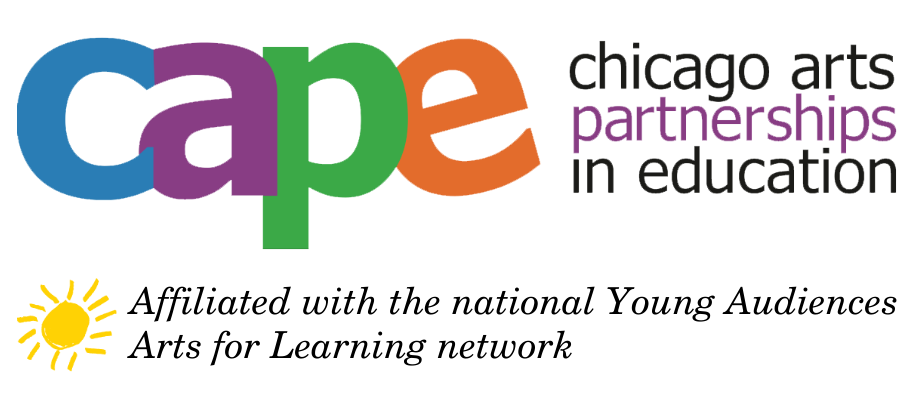What Will Betsy DeVos Bring to US Education Policy?
Since being nominated to serve as Secretary of Education under the new administration, many people have wondered, what will Betsy DeVos bring to US education policy? She was recently questioned by U.S. Senators and a vote on her nomination has been scheduled for tomorrow, January 31. While many education policies are determined on the state and local levels, the US Department of Education (US DOE) plays a significant role in ensuring equality of access and opportunity for all students. The US DOE also provides additional funds for schools serving students from low-income families, as well as a small amount of funds for arts education programs. For this reason, and based on her public statements, there are many reasons to scrutinize her record of activism against public education.
There are many vetted sources of information on Mrs. DeVos’ confirmation hearings before the Senate Committee on Health, Education, Labor and Pensions. You can read some of them here:
- The Washington Post- Six Astonishing Things Betsy Devos Said and Refused to Say at Her Confirmation Hearing
- The AfterSchool Alliance: Secretary of Education nominee Betsy DeVos testifies in Senate
- Education Week: Split Responses to Betsy Devos’ Confirmation Hearing (paywall)
- The New Yorker: Betsy Devos and the Plan to Break Public Schools
For CAPE, of particular concern was Mrs. DeVos’ testimony regarding support for students with special needs. In her testimony, Mrs. DeVos did not provide clear answers on whether or not she would support the Individuals with Disabilities Education Act (IDEA). CAPE works with many students who have a range of disabilities, and any reduction in funding or enforcement from the US Department of Education will have a profound and immediate impact on our students and millions of other children across the country.
The US DOE supports a wide range of after-school programs for low-income students. Currently, CAPE receives a grant from the Illinois State Board of Education’s 21st Century Community Learning Centers grant program for our after-school programs serving four schools. The state of Illinois receives these funds from the US Department of Education, under authorization from the recently passed “Every Student Succeeds Act” (ESSA). In total, the US DOE provides about $1.1 billion in after-school program funds for the entire country. To put it in perspective, that’s about $35 for each low-income student per year. Nationally, about 50% of all K-12 students live below the poverty line, in cities like Chicago and in many rural areas, the percentage of students living below the poverty line can exceed 80%. These students need all the help they can get in accessing safe, high-quality after-school care, and this need will be significantly harder to meet without the US DOE’s support. Here in Illinois, we’re already seeing what devastation looks like for students and nonprofits who rely on state funds for after-school programs, when those funds are limited or withheld altogether; Illinois is currently in its second year without a state budget, and as a result, many after-school providers have been forced to radically reduce their programs, cut staff, and deny service to those who need it most.
Not surprisingly, the topic of arts education did not come up during the confirmation hearing.
CAPE partners with the Chicago Public Schools to provide professional development for arts teachers on how to integrate technology into arts and academic classrooms. Funding for this program comes from the US DOE’s Professional Development for Arts Educators program. These funds are awarded to CAPE and CPS through a highly-competitive grant competition held every few years, and nationally, only $5,000,000 is available for these grants. The only evidence that Mrs. DeVos is supportive of arts education is the fact that the DeVos Foundation provides some support for arts programming in and around Grand Rapids, Michigan and nationally. It remains unclear, however, if Mrs. DeVos is in favor or the federal government’s financial support of arts education in our schools, or if she believes that to be an overreach and a cause better left to philanthropists
If confirmed as Secretary of Education, CAPE hopes that Mrs. DeVos will champion the ideals set forth in the US Department of Education’s mission, which is to promote student achievement and preparation for global competitiveness by fostering educational excellence and ensuring equal access. CAPE will continue to demonstrate how art education contributes to those goals and to communicate with officials at all levels the impact of arts education on students’ lives.






What will Betsy DeVos bring to US Education Policy? She has made no commitments to any aspect of public education, preferring market based privatization. She has stated that she would consider removing federal funding from public schools. As I wrote in a Facebook post a few weeks ago, Special Education, Technology Integration and Arts Integration are but three of many federally funded initiatives. While federal funding to education makes up a small percentage of local school funding, it is important. It furthers research designed to advance the educational knowledge base. It supports teachers and students. It facilitates economic and opportunity equity within each state and across the nation.
As a likelong educator, I think that any confirmation of Ms. DeVos will be hazardous to our nation’s historic commitment to any form of public education.
Betsy DeVos will be a disaster to public schools. She (and others) use the euphamism of “school choice” to describe privatization and social/financial selection. She represents no interest in the improvement of public schools, but would prefer the destruction of the system. We should all keep in mind what role public schools play in their respective communities in addition to education. The approach of “selection” only erodes the public system as the disadvantaged students are the only students remaining and their needs are completely ignored.